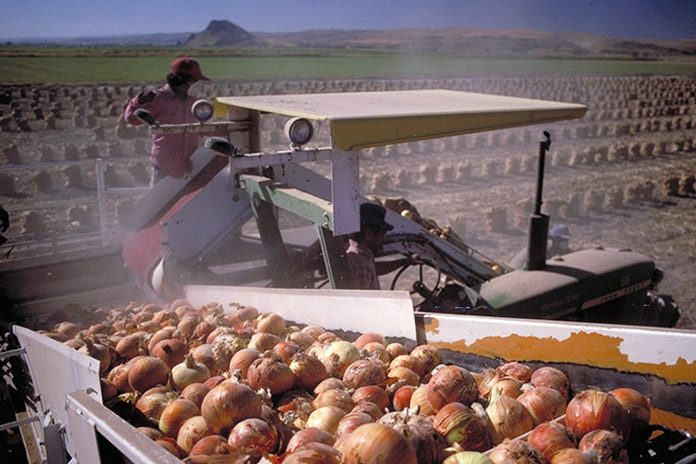
Oregon farmers who haven’t yet heard of the Food Safety Modernization Act and its acronym, FSMA, will likely soon become quite familiar with the nationwide effort to emphasize prevention of food borne illnesses. Grower training on the Produce Safety Rule will take place at four locations around the state next month – including Hermiston – and there are some very compelling reasons for fruit and vegetable producers to attend.
“Over time, there will be routine, mandatory produce farm inspections conducted either by the Food and Drug Administration (FDA) or by states,” says Sue Davis, a produce safety development specialist with the Oregon Department of Agriculture. “We need all this outreach because FSMA represents such a fundamental shift in a farm’s operating environment. Previously, growers have looked to audits that are market driven and voluntary. This changes everything.”
ODA has received grant funds to conduct outreach to growers. Step one is letting them know the Produce Safety Rule exists. Step two is letting them know how their farm is impacted and what they need to do to prepare for the rule.
FSMA is a complex, comprehensive undertaking. The Produce Safety Rule – one of seven FSMA rules – is complicated as well.
“The largest farms are covered now by some provisions of the rule, the same provisions will take effect for smaller farms over the next couple of years,” says Stephanie Page, ODA’s Director of Food Safety and Animal Services programs. “There have been a couple of key delays for some portions of the rule. The agricultural water quality portion of the rule is proposed to be delayed until 2022 at the earliest. FDA has also announced it will delay inspections for compliance with the rule itself until 2019 for all size farms.”
States, including Oregon, praise FDA for taking the time to think through implementation of the rule and continuing to work with stakeholders on developing the best way to protect public health while making it practical for farmers to comply. However, there is no delay in outreach and education.
“There are some people and organizations who have been tracking FSMA and the Produce Safety Rule closely, and have already gone through training so they can inform their industries about what is happening,” says Davis. “There are others, I think, who have been hoping all this would just go away but are realizing, rather suddenly, that they have a whole body of knowledge to take on board.”
The Produce Safety Rule requires that at least one supervisor or responsible party from a farming operation subject to the rule to successfully complete a food safety training at least equivalent to the Produce Safety Alliance (PSA) grower training.
“We figure there are about 1,600 farms in Oregon affected by the rule and our ultimate goal is to reach all of them with this training,” says Davis. “These upcoming trainings target the 300 or so that are on the shortest time frame for compliance– those large farms that record more than $500,000 in annual sales.”
Trainings will be held at Oregon State University Extension sites on Nov. 7 in Medford, Nov. 13 in Aurora, Nov. 14 in Hermiston, and Nov.r 15 in Hood River. The cost to register for the full, 8-hour training is $25. Corresponding trainings will be held in the neighboring states of Washington and Idaho, which could be a good option for those Oregon farms near the border.
The PSA Grower Training Course will include an introduction to produce safety; worker health, hygiene and training; soil amendments; wild, domesticated animals, and land use; agricultural water; post-harvest handling and sanitation; and developing a farm food safety plan. At the heart of all this training is food safety.
“It looks at the most likely pathways for contamination on farms that produce fruits and vegetables likely to be eaten raw,” says Davis. “This training will help growers get a good understanding of how they can arrange their farm’s operation to address the points of risk.”
At the end of the day, each participant will be registered by the Association of Food and Drug Officials (AFDO) as having completed the training, which should keep farms subject to the rule in compliance. Those trained can go back to the farm and train others as needed.
For more information, contact Sue Davis at (503) 807-5864.










